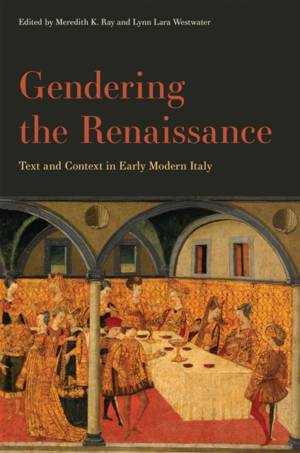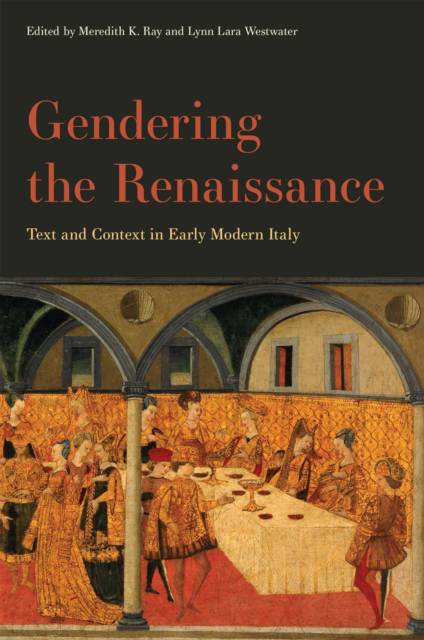
Door een staking bij bpost kan je online bestelling op dit moment iets langer onderweg zijn dan voorzien. Dringend iets nodig? Onze winkels ontvangen jou met open armen!
- Afhalen na 1 uur in een winkel met voorraad
- Gratis thuislevering in België vanaf € 30
- Ruim aanbod met 7 miljoen producten
Door een staking bij bpost kan je online bestelling op dit moment iets langer onderweg zijn dan voorzien. Dringend iets nodig? Onze winkels ontvangen jou met open armen!
- Afhalen na 1 uur in een winkel met voorraad
- Gratis thuislevering in België vanaf € 30
- Ruim aanbod met 7 miljoen producten
Zoeken
Gendering the Renaissance
Text and Context in Early Modern Italy
€ 213,95
+ 427 punten
Omschrijving
The essays in this volume revisit the Italian Renaissance to rethink spaces thought to be defined and certain: from the social spaces of convent, court, or home, to the literary spaces of established genres such as religious plays or epic poetry. Repopulating these spaces with the women who occupied them but have often been elided in the historical record, the essays also remind us to ask what might obscure our view of texts and archives, what has remained marginal in the texts and contexts of early modern Italy and why. The contributors, suggesting new ways of interrogating gendered discourses of genre, identities, and sanctity, offer a complex picture of gender in early modern Italian literature and culture. Read in dialogue with one another, their pieces provide a fascinating survey of currents in gender studies and early modern Italian studies and point to exciting future directions in these fields.
Specificaties
Betrokkenen
- Uitgeverij:
Inhoud
- Aantal bladzijden:
- 308
- Taal:
- Engels
- Reeks:
Eigenschappen
- Productcode (EAN):
- 9781644533055
- Verschijningsdatum:
- 14/04/2023
- Uitvoering:
- Hardcover
- Formaat:
- Genaaid
- Afmetingen:
- 156 mm x 235 mm
- Gewicht:
- 467 g

Alleen bij Standaard Boekhandel
+ 427 punten op je klantenkaart van Standaard Boekhandel
Beoordelingen
We publiceren alleen reviews die voldoen aan de voorwaarden voor reviews. Bekijk onze voorwaarden voor reviews.










